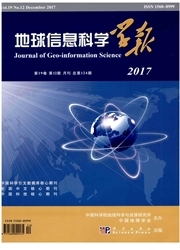

 中文摘要:
中文摘要:
中国明代航海图闻名世界,迄今发现的明初"海道指南图"汇集了千年来南粮北运航线的详实资料;"郑和航海图"展示了中国古航海与航海图的鼎盛风貌,首次公开了跨越亚非欧洲际间的14条航线写景图,以及牵星技术成功应用于远洋导航先例,并继承发展了汉代以来所开辟的海上丝绸之路,再次宣扬了以文化交流与特产贸易为主要目的中外交往传统;南海天书"更路薄"记录了中国历代渔民用生命所换来的航海指南;"琉球过海图"代表了中国古代航海家曾经越洋过海先后到达琉球、台湾、日本等地的东方航海"针路"(指南针定向)面貌;"雪尔登中国地图"的航海总图功能,完善了明代航海图系列。本文还系统地论述了中国明代航海图的写实风格、配套文字或图说等内容特色,以及所采用的"对景法"、"牵星板"、"水上罗盘"、"天文观测仪器"、"船上测速"等技术特色。
 英文摘要:
英文摘要:
The navigational charts in China's Ming dynasty are famous all over the world at that time, such as the‘Hydrographic Guide Map'so far discovered in the early Ming Dynasty, which collected the detailed shipping route to transport grain from the south to the north along the coastline between Ningbo and Liao river over thousands of years; and the‘Zheng He Navigational Chart', which reveals the style and features in a period of great prosperity on Chinese ancient navigation achievements and navigational chart techniques and includes 14 seaway routes crossing Asia, Africa and Europe recognized as the first one in the world. The inheritance and development of the‘Maritime Silk Road'since Han dynasty, once again advocates the main purpose of the traditional business between china and foreign countries, which is the culture exchange and local product trading. The‘Sea Route Book'recorded the navigational guide of South China Sea as the legacy and at the cost of generations of fishermen's life during the ancient times. The‘Ryukyu Nautical Charts' shows the distribution of navigation routes that ancient Chinese navigators recorded during their visits to Ryukyu, Taiwan, Japan and other places across the east ocean of China. The‘Selden Map of China'keeps the functions of a general nautical map, and perfected the nautical chart series of Ming dynasty. This paper also systematically discusses the realistic style of the navigational charts, their matching descriptions or drawings in Ming dynasty, as well as the adoptions of‘Opposite Scenery Method',‘Lead Star Board',‘Water Compass',‘Astronomical Observation Instruments' ‘,Speed Detection On Board'and other unique techniques.
 同期刊论文项目
同期刊论文项目
 同项目期刊论文
同项目期刊论文
 期刊信息
期刊信息
